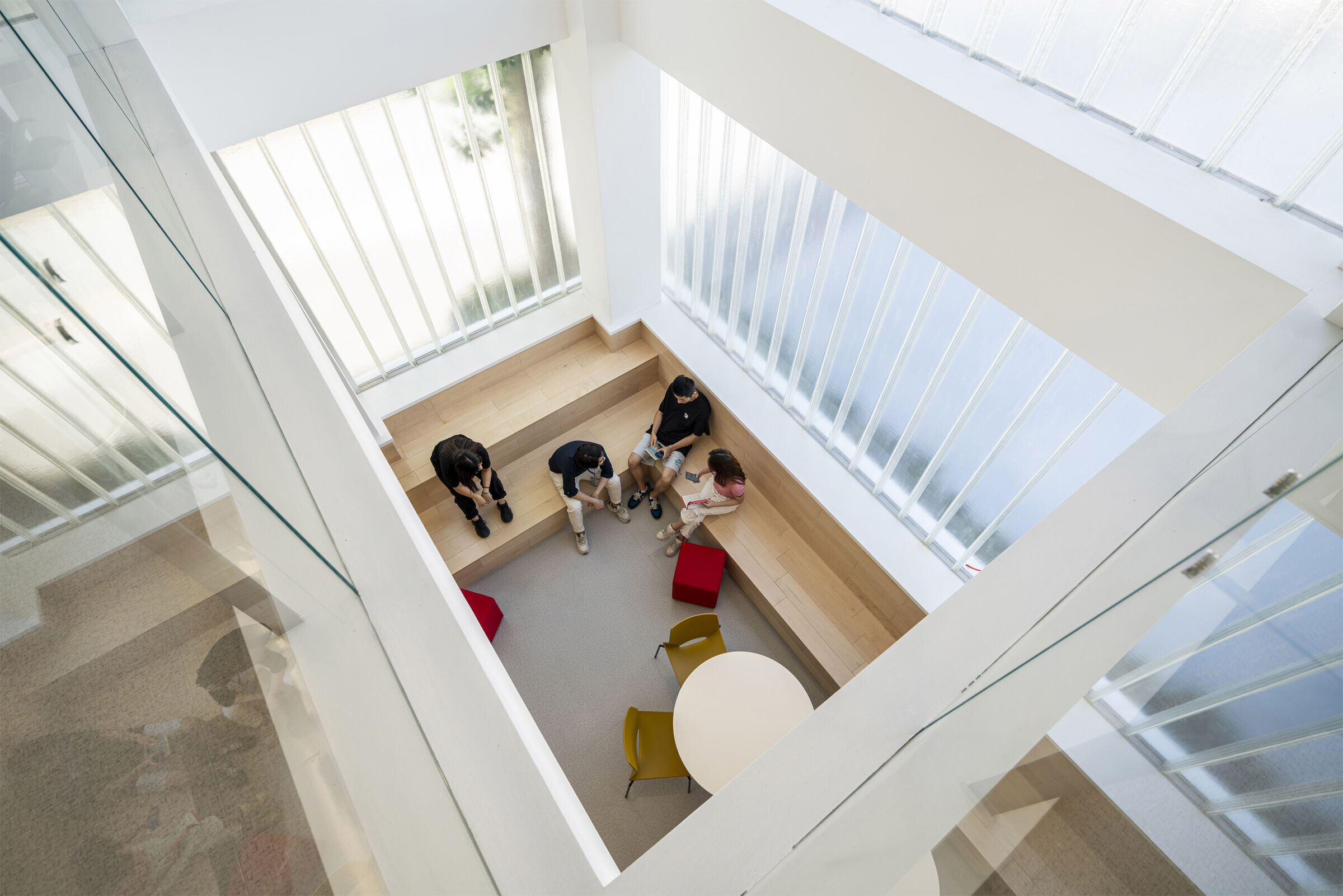Background
Yew Chung International School is the top K12 international school in China. It is located in the Changning district of central Shanghai. The reconstructed building was originally a small supermarket, and later the school purchased the supermarket as a temporary laboratory classroom. This renovation is to prepare for the overall renovation plan of the main campus. In the early stage, it will serve as a temporary classroom for the students from the main campus. In the long term, it will be used as part of an innovative teaching center to adapt to the development and upgrading of the overall campus hardware in the future.
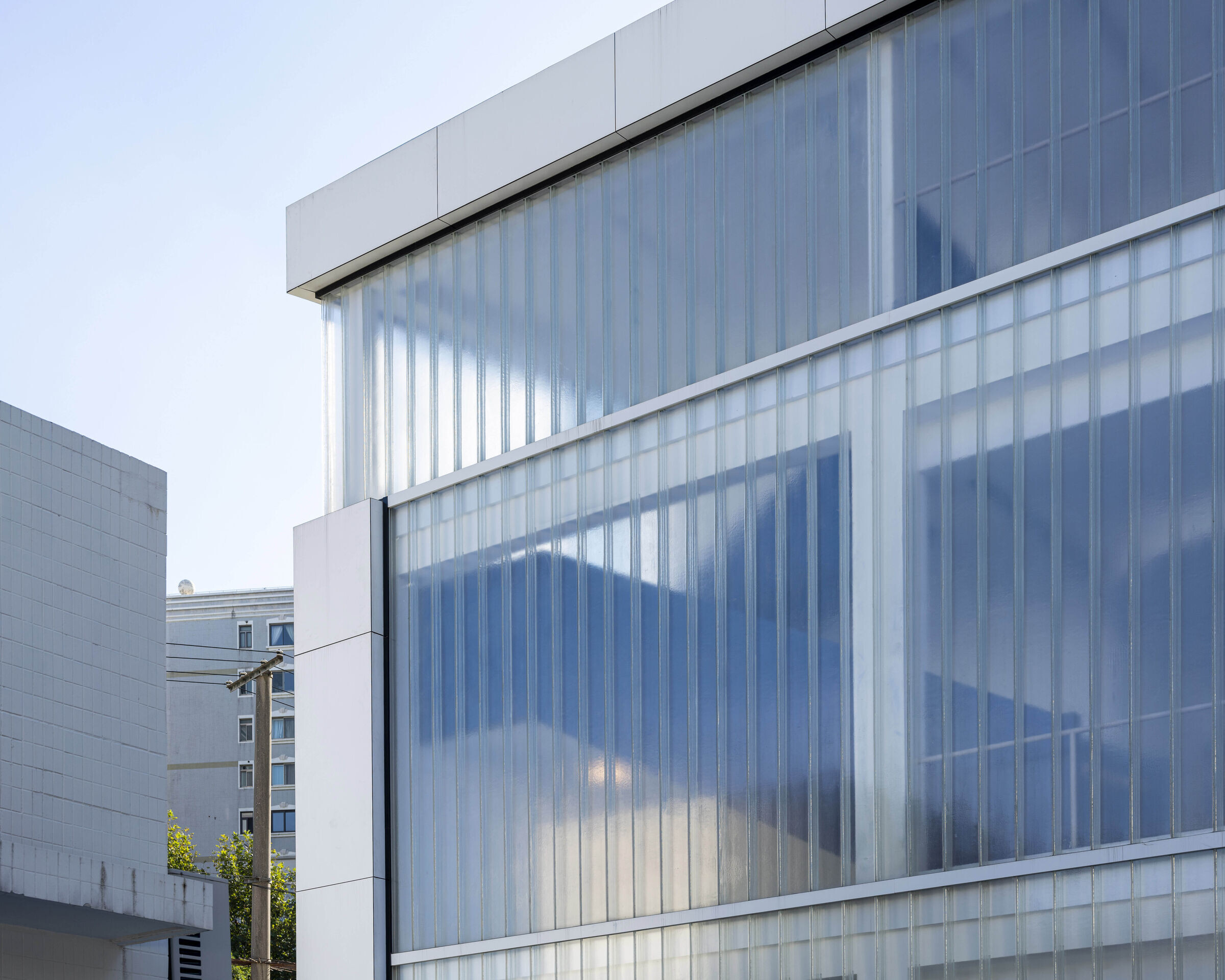
The starting point of the design is exploring the method to transform a building in a high-density community to meet the needs of future education, and at the same time minimize the impact on community residents, so that the building remains as "The Observer" in the center of the city.
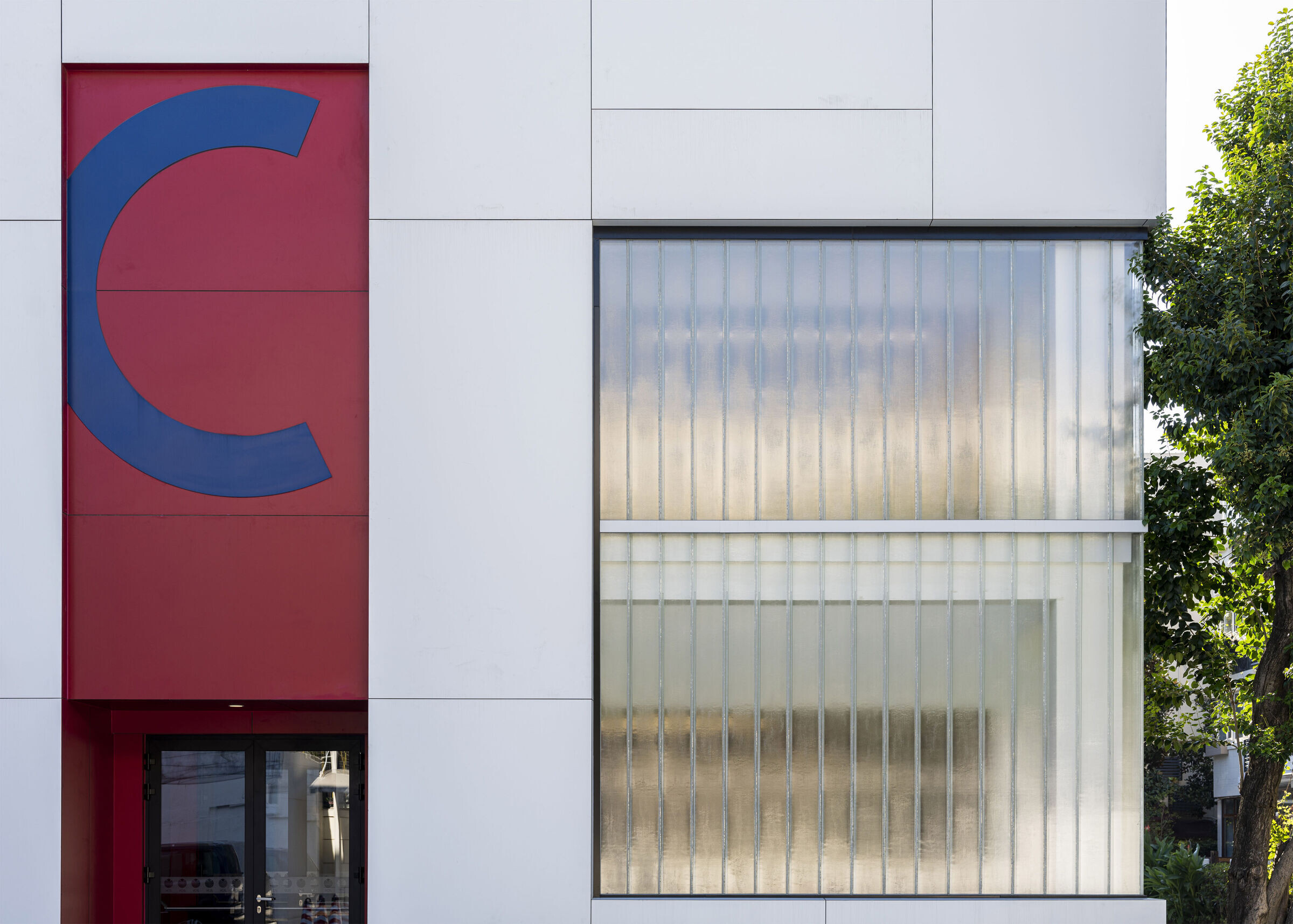
While strengthening the structure of the building, the architects chose a more convergent and calm temperament for the façade than the original supermarket. In order to reduce the visual and noise from the urban arterial roads to the internal space, U-shaped glass replaced most of the windows. Therefore, it presents a translucent and hazy intention and a posture of leaving the college and artistic architecture.
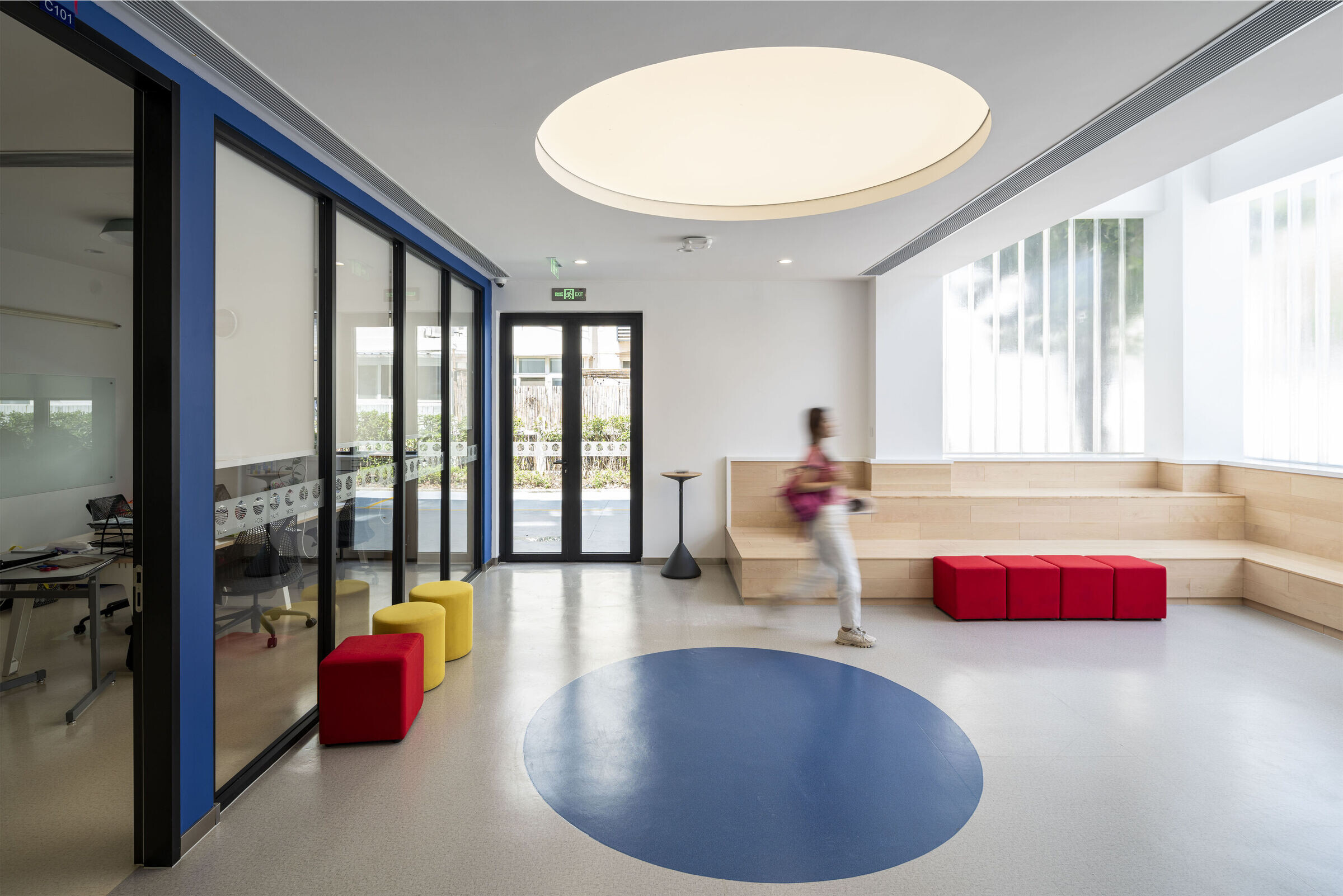
The entrance was changed from the north side facing the residential building to the east side facing the main campus. In the design, the original approach of highlighting the outline of the building was abandoned, and a recessed and concealed approach was adopted to make the whole environment less involved. Instead, on both sides of the entrance, the interior space is allowed to penetrate the campus's vitality into the community through a large area of translucent windows.
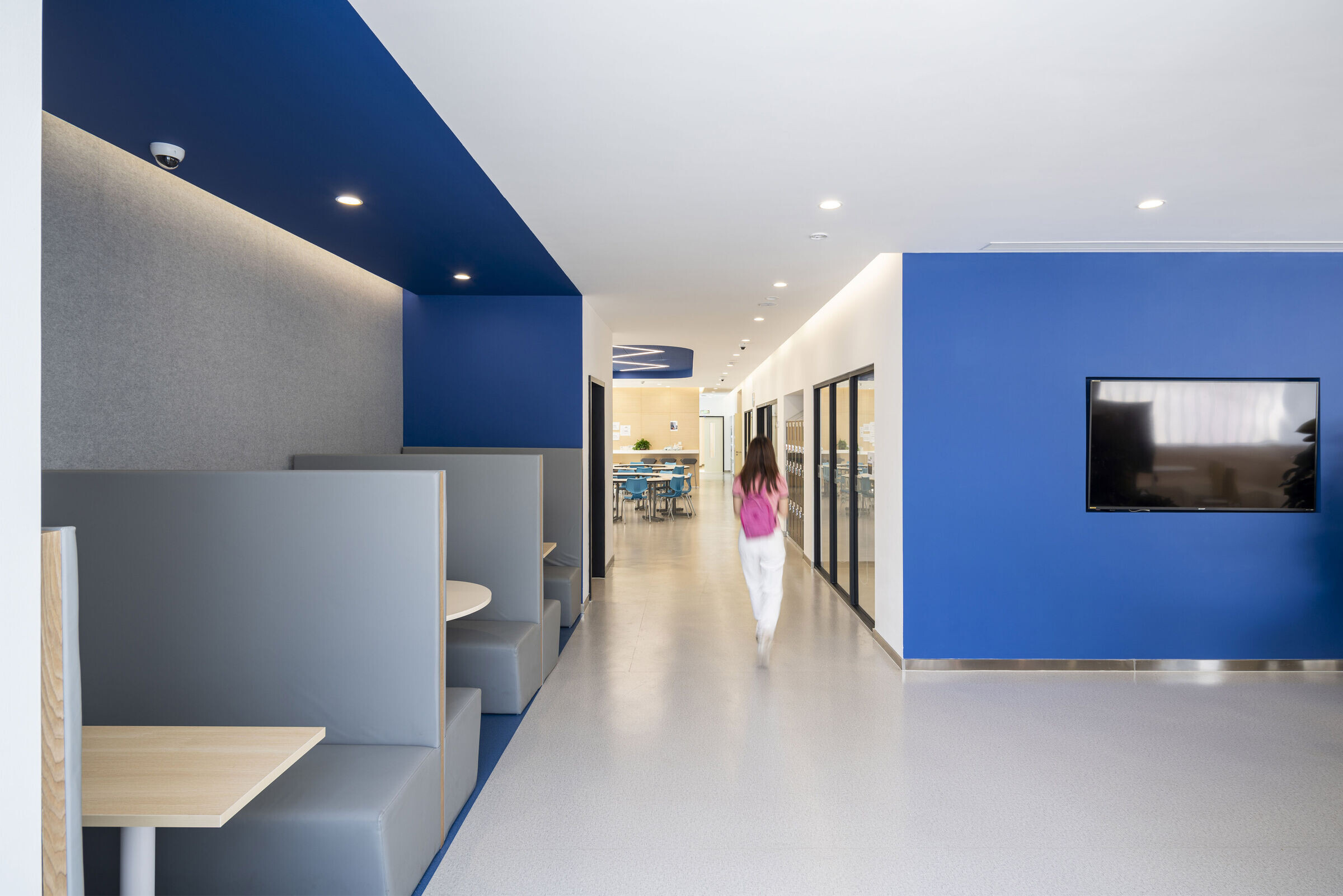
The building accommodates a wealth of spaces in only around 1,000 square meters. In order to meet the flexibility of future education, traditional spaces such as the building's foyer and walkway have been designed into several multi-functional teaching spaces. Light and green trees enter the room through the U-shaped glass, like cells exchanging nutrients with the outside world through a semi-permeable membrane, realizing breathing in indoor and outdoor spaces.
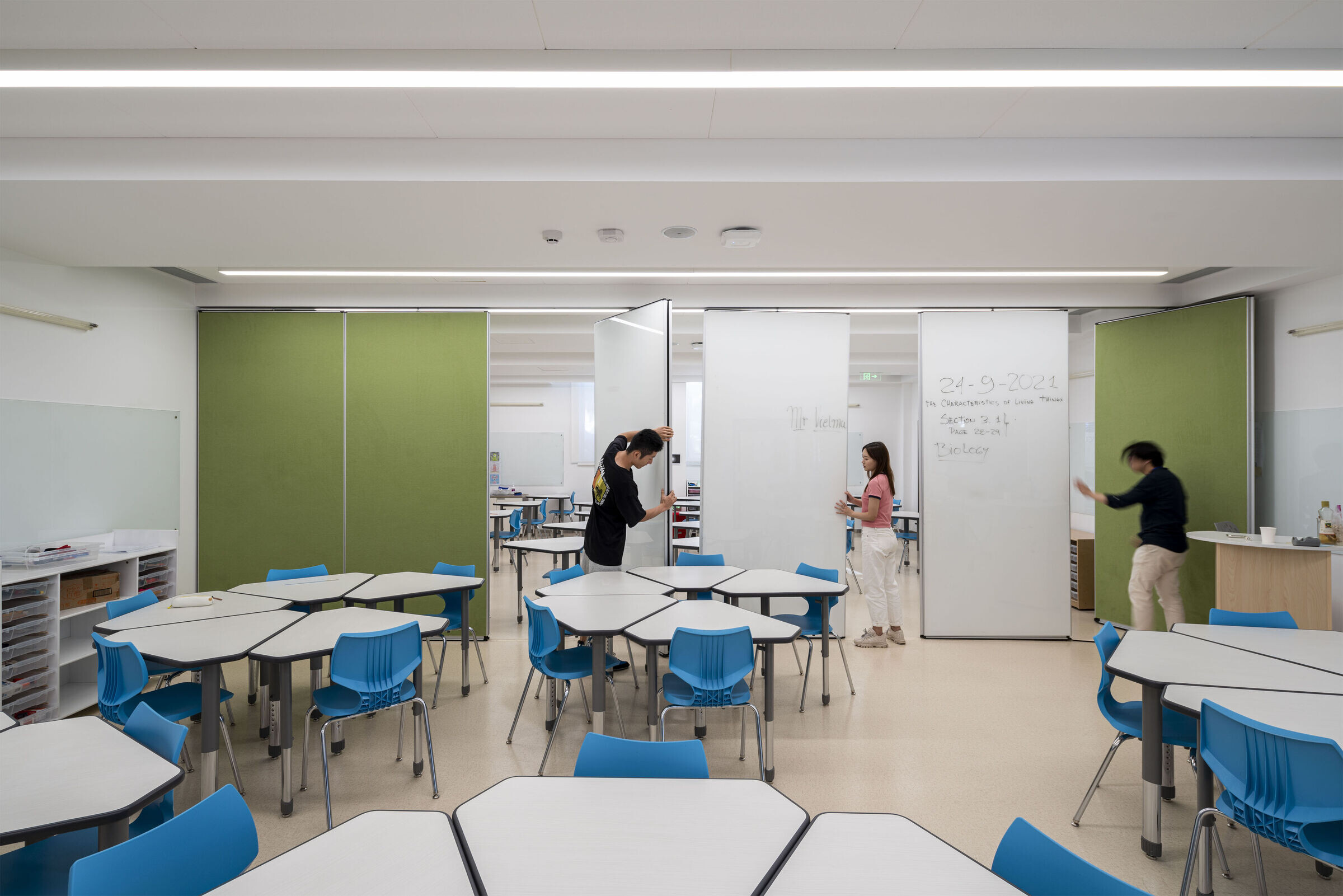
We used the square area of the column net on the north side of the original building to arrange a regular classroom. The flexible partition in the middle allows classroom units to be combined into a larger teaching space.
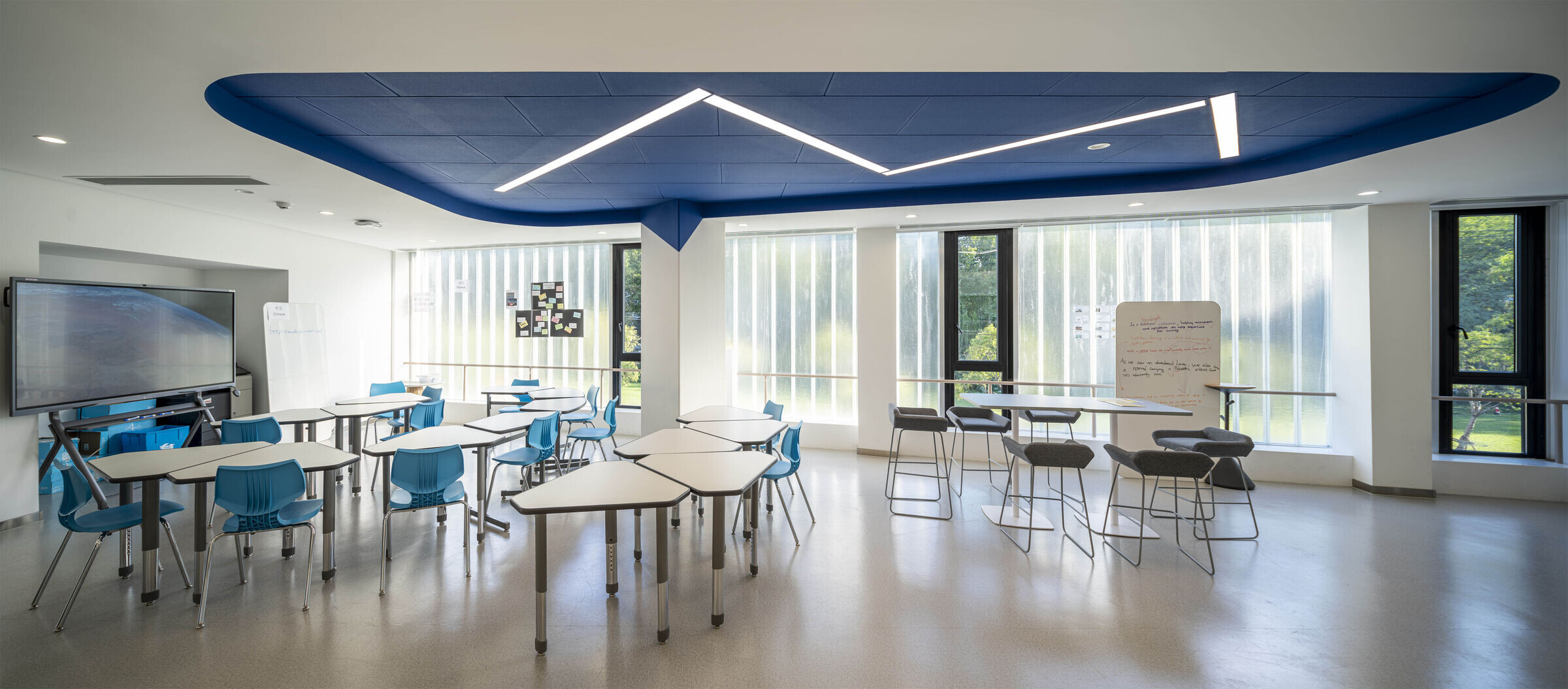
Between the public spaces, through the design of furniture, different usage scenarios are defined. The space adapts to different learning scales, including a step-by-step gathering space for dozens of people, a group hands-on learning area where furniture can be grouped, individual independent self-study areas, and so on.
And with the placement of movable furniture, it shows maximum flexibility. Just like the shape of the dialog box embedded on the ceiling, waiting for the children to make their own voices.

The setting of U glass shields the interior space from the interference of part of the main roads of the city, and also makes the behavior and movement of students in the building become a looming drama in the city.
